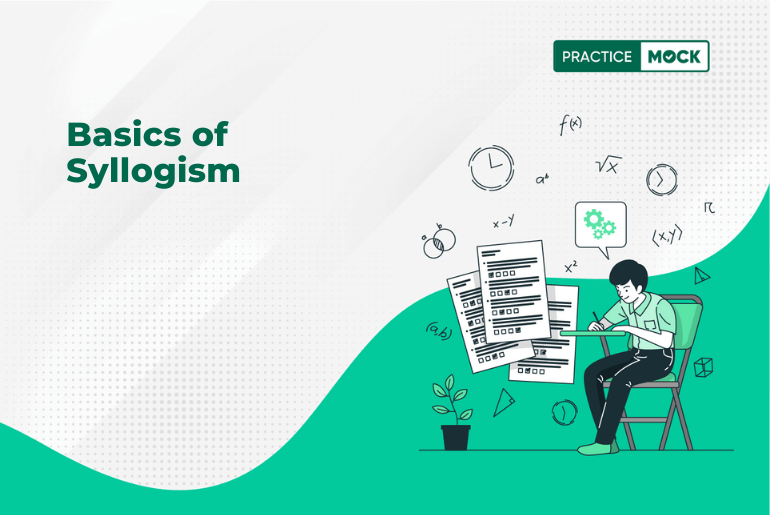Basics of Syllogism: Syllogism is a key component of logical reasoning and critical thinking. This fundamental concept allows us to draw logical conclusions from given premises. To grasp the art of syllogism, let’s start with the basics.
Defining Syllogism
Syllogism is a deductive reasoning process that entails deriving a conclusion from two premises, whether given or assumed. The conclusion must follow logically from the premises, making syllogisms a valuable tool for evaluating the validity of arguments and reasoning.
Key Elements of a Syllogism
A syllogism is comprised of three primary components: the major premise, the minor premise, and the conclusion. The major premise is a general statement, the minor premise is a specific statement, and the conclusion logically flows from these two premises.
Categorical Syllogisms
Categorical syllogisms are the most common type. In these syllogisms, statements revolve around categories or classes. Terms such as “all,” “some,” or “none” are used to make statements regarding the relationships between these categories.
An Example of a Categorical Syllogism
- Major premise: All mammals are warm-blooded.
- Minor premise: Humans are mammals.
- Conclusion: Therefore, humans are warm-blooded.
Diverse Types of Syllogisms
There are various types of syllogisms, including categorical syllogisms, hypothetical syllogisms, and disjunctive syllogisms, each with its own unique characteristics and rules.
Rules for Valid Syllogisms
For a syllogism to be considered valid, it must adhere to specific rules. The conclusion must be a logical consequence of the premises, and each term should be used consistently throughout the argument. Furthermore, a valid syllogism must contain two premises and one conclusion.
Testing Validity
The validity of a syllogism can be evaluated through several methods, including Venn diagrams, truth tables, and the application of specific rules, such as modus ponens and modus tollens.
Practical Application
Syllogisms play a prominent role in competitive exams, aptitude tests, and assessments of critical reasoning. Proficiency in syllogism problem-solving is developed through practice and application, enabling individuals to analyze and deduce logical conclusions effectively.
In Conclusion
A grasp of the fundamentals of syllogism is the first step in mastering this essential element of logical reasoning. As you become more acquainted with syllogistic rules, types, and applications, you’ll find yourself well-prepared to draw valid conclusions and assess arguments with precision.
- Sign Up on Practicemock for Updated Current Affairs, Free Topic Tests and Free Mini Mocks
- Sign Up Here to Download Free Study Material
Free Mock Tests for the Upcoming Exams
- IBPS PO Free Mock Test
- RBI Grade B Free Mock Test
- IBPS SO Free Mock Test
- NABARD Grade A Free Mock Test
- SSC CGL Free Mock Test
- IBPS Clerk Free Mock Test
- IBPS RRB PO Free Mock Test
- IBPS RRB Clerk Free Mock Test
- RRB NTPC Free Mock Test
- SSC MTS Free Mock Test
- SSC Strenographer Free Mock Test
- GATE Mechanical Free Mock Test
- GATE Civil Free Mock Test
- RRB ALP Free Mock Test
- SSC CPO Free Mock Test
- AFCAT Free Mock Test
- SEBI Grade A Free Mock Test
- IFSCA Grade A Free Mock Test
- RRB JE Free Mock Test
- Free Banking Live Test
- Free SSC Live Test


